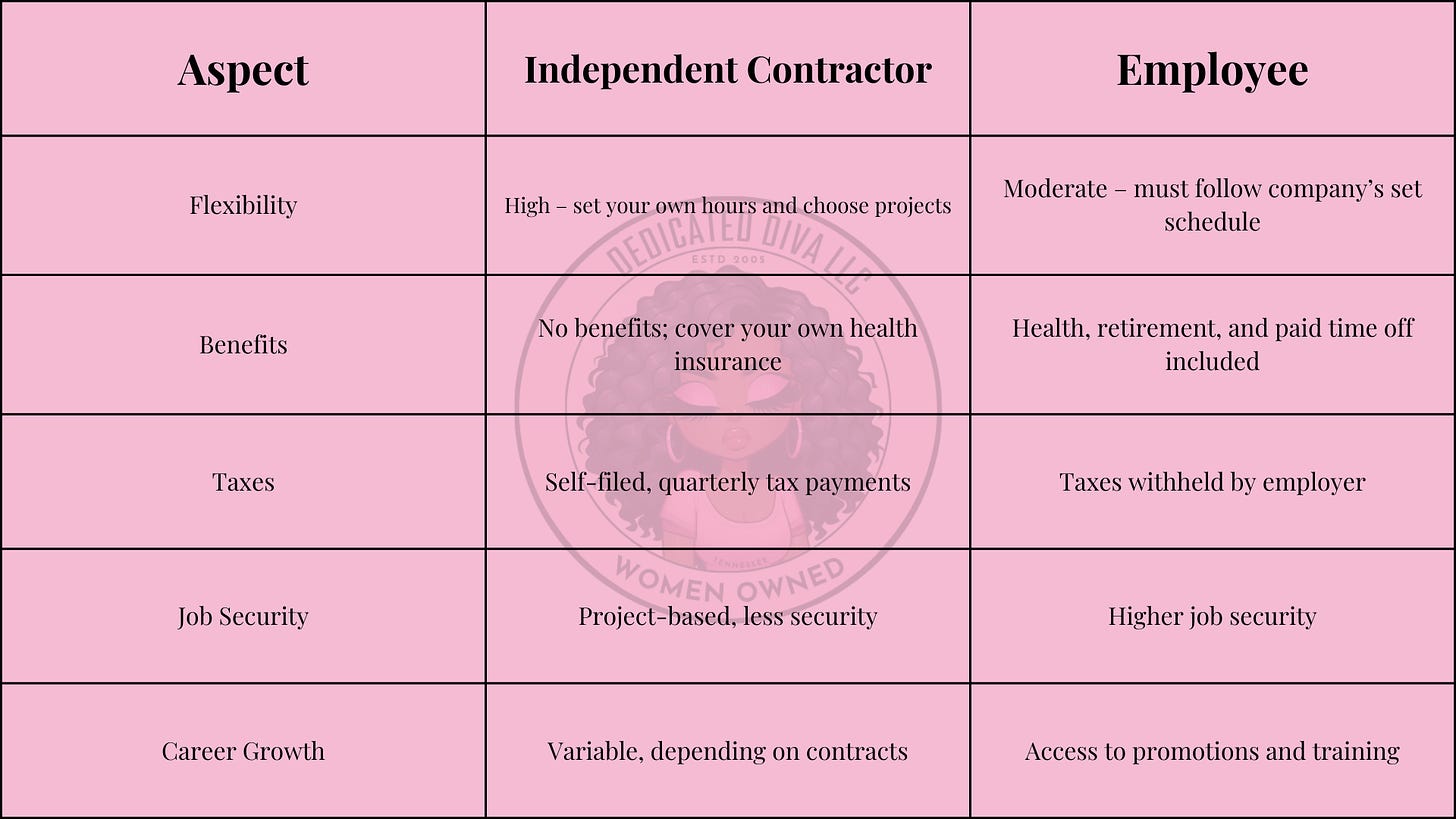Independent Contractor or Employee? Choose the Right Work-from-Home Path for You!
Hello Dedicated Diva Community!
In today’s newsletter, we're diving into a topic many remote workers wonder about: Should you work from home as an independent contractor or an employee? While both offer the flexibility of remote work, each path has unique benefits and considerations. Let’s break it down so you can decide which path aligns best with your goals.
1. What’s the Difference?
Independent Contractor
As an independent contractor, you’re essentially self-employed, providing specific services for a company or client. Here’s what it looks like in practice:
Autonomy: You set your hours, work independently, and typically take on multiple clients.
Tax Responsibility: You handle your taxes, often paying quarterly estimated taxes, and can usually deduct business-related expenses.
Project-Based: Many roles are project-based or have shorter contracts, giving you the freedom to switch projects or clients as needed.
Employee
Working as an employee means you’re hired by a company and receive a regular paycheck, typically with more job security and access to benefits.
Fixed Schedule: You may have set working hours or be expected to log a certain number of hours each week.
Benefits: Employees often receive health insurance, retirement plans, and paid time off.
Less Tax Responsibility: The company withholds taxes on your behalf, so tax season is a bit simpler.
2. Key Differences
3. Pros and Cons of Each Option
Independent Contractor
Pros
Complete flexibility in choosing clients and projects
Ability to set your own rates and potentially earn more
Freedom to work in multiple industries or specializations
Cons
No employer-provided benefits (insurance, retirement, PTO)
Income may fluctuate month to month
Responsible for paying self-employment tax
Employee
Pros
Steady income with regular paychecks
Benefits like health insurance and retirement plans
More long-term career development opportunities
Cons
Less flexibility in working hours and location
Limited to a specific role within the company
Potentially lower pay than contractors in the same field
4. How to Decide Which Path Fits Your Lifestyle
To make the best choice, think about what matters most to you. Here are a few guiding questions:
Are you looking for stability or flexibility? If stability and a predictable paycheck are crucial, an employee role might be best. If freedom and variety are your goals, contracting could be a great fit.
Do you value employee benefits? Health insurance, paid leave, and retirement contributions are valuable perks of employee status, so consider if they are priorities.
How comfortable are you with self-managing? Independent contractors often handle everything from invoicing to tax filing, which requires more administrative work.
5. Conclusion
Whether considering a career shift or looking to expand your work-from-home options, understanding the pros and cons of being an independent contractor versus an employee can guide you toward the best fit. Think about your long-term goals, financial needs, and the type of work-life balance you want.
Interested in Learning More?
At Dedicated Diva Co., we’re here to support your at-home journey. Follow us for weekly tips on everything from job hunting to achieving work-life balance while working from home.
Thank you for reading.
Remember: Your dream work-from-home role is out there. Let’s find it together!
Warm Regards,
Dedicated Diva
Dedicated Diva Co.




